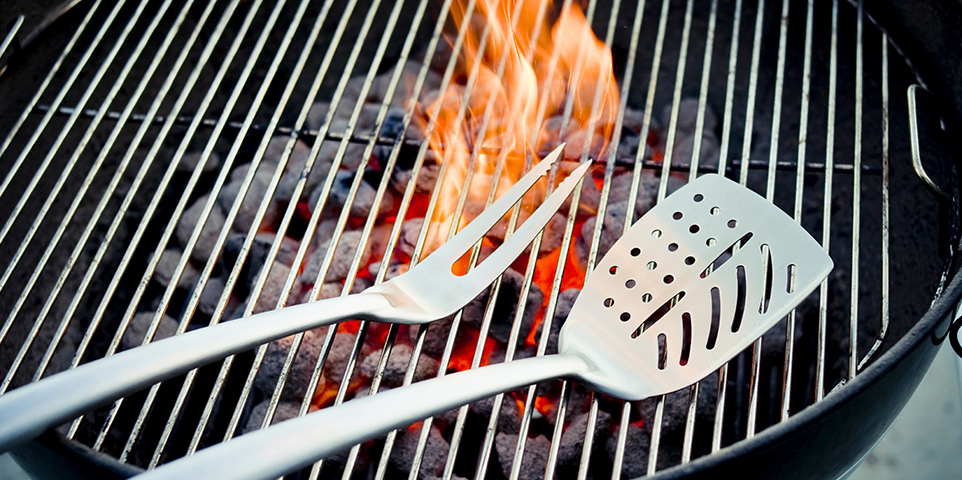Hot to handle
According to the U.S. Fire Administration, about 5,700 grill fires take place on residential property every year, most caused by malfunctioning gas grills. These fires cause an annual average of $37 million in damage, 100 injuries and 10 fatalities. In addition, thousands more people visit emergency rooms every year because they have burned themselves while barbecuing.
In the rare instance of a grill fire spreading to your property, your homeowners insurance provides financial protection, as fire is a covered peril. A standard policy covers:
- Damage to the house itself
- Damage to personal possessions, such as lawn furniture
- Damage to insured structures on your property, such as a shed or gazebo
- Injuries to a guest, under the liability portion of the policy
Of course, the best way to enjoy a summer of outdoor barbecues is to take steps to prevent accidents, and take fast action should any occur.
Properly maintain and store your grill
Gas grills are generally safe if they are properly designed and constructed, properly maintained and regularly checked for leaks. Follow these safety tips when setting up at the start of each grilling season:
- Search the Consumer Product Safety Commission website to make sure there has not been a recall on your model grill.
- Check grill hoses for cracks, holes and brittleness.
- Check for blockages, especially in the Venturi tube that runs to the burners. These can be caused by food drippings, spiders or insects. Clear any blockages with a wire or pipe cleaner.
- Check for leaks by running a solution of one part liquid soap, one part water along hoses and on connections. Open the valve at your tank and check to make sure that gas isn’t escaping, which will be indicated by bubbles at the leaking points.
- Adjust hoses away from hot areas or where grease might drip on them.
- Cover your grill when cooled and not in use to help protect its parts from inclement weather, falling leaves, and insect activity.
- Store propane tanks outside, away from your house. Always check to make sure valves are firmly turned off.
Practice safe barbeque habits
When barbecuing, use common sense:
- Operate your barbecue on a level surface, away from your house, garage and landscaping.
- Keep a fire extinguisher nearby and let everyone know where it is and how to operate it.
- Don’t move the grill once it is lit.
- Keep children and pets away from the grill.
- Protect yourself—or whoever is doing the grilling—with a heavy apron and oven mitts that reach high on the forearm. Use very long-handled utensils designed for barbecuing.
- Use only lighter fluid designed for grilling when charcoal grilling. Never use gasoline or other flammable liquids, and never add more lighter fluid once the fire has started.
- Never grill indoors or in enclosed areas. Charcoal grills produce carbon monoxide (CO) fumes, which can be fatal in unventilated areas.
- Wait until the grill is cooled before storing or covering. When you’re done cooking, remember that the grill will remain hot for a while.
- Soak charcoal briquettes with water to ensure they are cool and inactive before throwing them away.
Know what to do in case of an accident
Despite all good efforts to prevent them, accidents do happen. Which is why they're called accidents—and why people have insurance! Here are steps to take if the worst should happen:
- In case of fire get out the trusty fire extinguisher and, if the situation warrants, call 911. Fire spreads quickly and it's better to be safe with professional help than sorry.
- Address injuries immediately. Run cool water over minor burns, but do not cover injured areas with bandages, butter or salve. In the case of serious burns, take victims to the emergency room or an urgent care facility. Again, if needed or when in doubt, call 911.
- Assess your property damage. Once you have dealt with any injuries and the smoke clears, assess your property damage. If the situation calls for it, contact your insurance professional to discuss filing a claim.
Additional resources:
Consumer Product Safety Commission
Next steps: Serving beer at the barbecue? Understand your social host liability.
